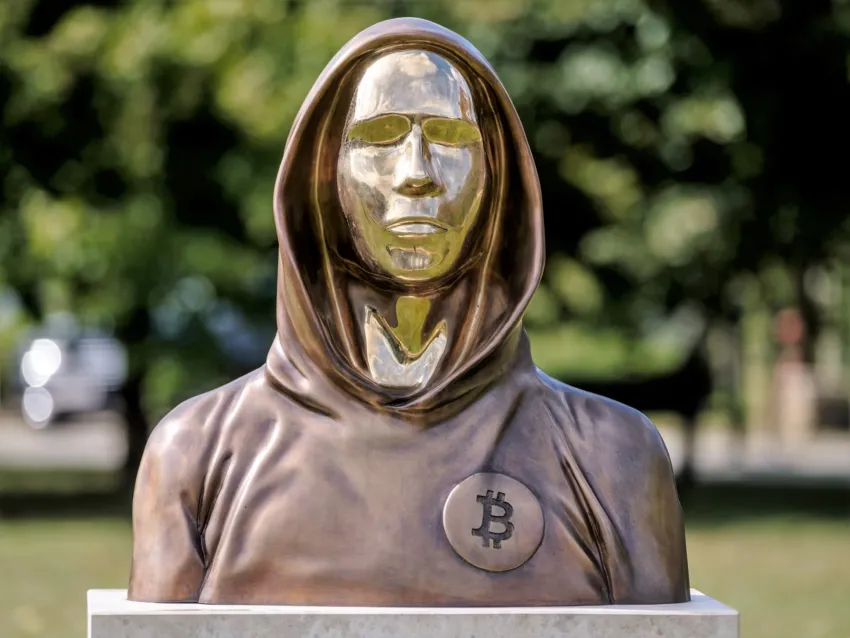The world has long been speculating about the true identity of Bitcoin creator Satoshi Nakamoto. Meanwhile, some of the prime contenders have fallen silent, leaving intriguing questions about the potential involvement of the CIA.
We look at Gavin Andresen’s potential connection to Satoshi Nakamoto and if the US Central Intelligence Agency (CIA) played a role.
Who is Gavin Andresen?
Gavin Andresen was born in Melbourne in 1966 and later moved to the United States at six. While details of his early life remain guarded, we know he pursued studies at Princeton University. He graduated in computer science in 1988.
After completing his education, he began working as a graphics systems developer at Silicon Graphics, a major computer hardware and software company. His focus centered on the Virtual Reality Modeling Language (VRML), which enables the creation of a 3D universe.
In 1996, Andresen ventured into entrepreneurship after leaving Silicon Valley. He dedicated himself to his company while remaining engaged in third-dimensional software development for years.
From the early 2000s, he contributed to creating computer software for VoIP telephony, online gaming, and credit management.
His trajectory took a pivotal turn in 2010 when he discovered Bitcoin. Andresen established his crypto faucet and eventually joined the team of developers for the first cryptocurrency. There, he collaborated closely with Satoshi Nakamoto, playing a key role in developing an early token exchange system.
Following Nakamoto’s passing, Andresen took charge of the BTC team, reengineering the token by introducing Bitcoin Core, an optimized version of Nakamoto’s code. He later founded the Bitcoin Foundation and was president before retiring in 2014.
While distancing himself from the project in 2016, Andresen continued to offer advice before eventually leaving altogether. He went on to create Bitcoin XT, introducing changes to the token’s block size.
Andresen’s perspective on the original cryptocurrency shifted as he ardently advocated for Bitcoin Cash. He argues that Bitcoin Cash better embodies the vision set by Satoshi Nakamoto.
Read more: Bitcoin Cash (BCH) Price Prediction 2023/2025/2030
Andresen’s Views on Satoshi Nakamoto
Andresen was often asked about the true identity of Bitcoin creator Satoshi Nakamoto. He has refrained from speculation, possibly because he has never met Satoshi Nakamoto in person. Their interactions primarily occurred through email, hinting at a distant collaboration.
However, in 2016, Andresen publicly endorsed Craig Wright as Nakamoto. However, Wright’s evidence that proved him the real Santoshi Nakamoto was later debunked.
According to a report by The Guardian, this incident led to Andresen’s distancing from the Bitcoin project amid concerns that he could inadvertently provide Bitcoin code access to a scammer.
Is He Satoshi? Expert Opinions
Andresen has never claimed to be Bitcoin creator Satoshi Nakamoto himself.
Meanwhile, no expert has identified Gavin Andresen as Satoshi Nakamoto. But some in the crypto community have entertained the possibility due to the following reasons:
Andresen’s deep understanding of Bitcoin’s system and the politics associated with it.
The ease with which Nakamoto handed over the project to Andresen.
Speculation that Nakamoto’s disappeared after the CIA got involved. And his identity change was linked to the agency’s awareness.
The notion that Andresen might have created Bitcoin while attributing it to another identity for personal protection.
Nevertheless, Gavin Andresen’s position remains controversial within the ecosystem. Some consider him the true father of Bitcoin, while others believe he undermined it by involving the CIA. The last email exchange with Nakamoto suggested his desire to hide no longer.
Assessing Possibilities With a Probability Test
Is Gavin Andresen actually Satoshi Nakamoto? Has the creator of Bitcoin left anything on the table?
Our probability test can shed some light on the subject:
Cryptographic proof: Gavin Andresen did not use any tool, private key, or even account belonging to Satoshi Nakamoto. Even when the latter left him the keys to the project, or he was able to retrieve them himself.
Read more: What Is a Satoshi?
Technical Knowledge of Cryptography and Contributions: Despite his active contribution to the development and subsequent improvement of Bitcoin, there is no evidence that Andresen has any knowledge or skill in cryptography.
If he had a good understanding of it, his role after the departure of Satoshi Nakamoto would have essentially been to ensure the maintenance of Bitcoin and the fixing of bugs.
Communications and Language Matches: As a Bitcoin programmer and developer, Andresen is fluent in several computer languages, including C++, which was used to encode the first cryptocurrency.
It has often been accepted that Satoshi Nakamoto was from the Commonwealth. Originally from Australia, Andresen doesn’t always use the same expressions as him. In addition, Andresen has often stood out from the creator’s formal communications through the use of colloquial terms.
Consistency of statements: Both Satoshi Nakamoto and the developer that interests us today agree on the need to maintain privacy. Andresen has repeatedly opposed central banks, centralized governments, and the oversight of financial systems.
Meanwhile, his involvement with the CIA continues to be debated. He often justified his actions by stating Bitcoin would make a better world. However, presenting the token to an intelligence agency can contradict the original libertarian vision of crypto. This is why some industry members suspect him of being an undercover agent whose mission was to bring down Satoshi!
Community recognition: While recognized within the crypto community, Andresen’s claim to Nakamoto’s identity remains marginal.
Therefore, by conducting a probability test, it’s unlikely that Andresen is Nakamoto, at a mere 10% probability rate.
Disclaimer
Following the Trust Project guidelines, this feature article presents opinions and perspectives from industry experts or individuals. BeInCrypto is dedicated to transparent reporting, but the views expressed in this article do not necessarily reflect those of BeInCrypto or its staff. Readers should verify information independently and consult with a professional before making decisions based on this content.
Credit: Source link




